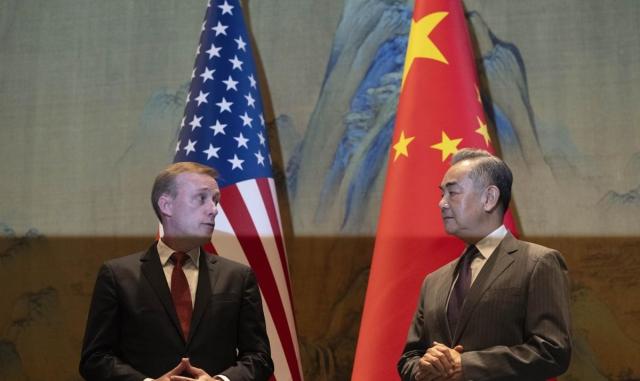Analysts suggest that such high-level communication is crucial for effectively managing the complex relationship between China and the U.S., and helps foster a more accurate understanding of China's position.
Wang, who holds key positions in China's foreign affairs and political structure, reflected on the tumultuous history of China-U.S. relations. He emphasized the need to learn from past experiences to establish a framework for peaceful coexistence between the two major powers.
According to Wang, the direction of China-U.S. relations heavily depends on guidance from the top leadership of both countries. He stressed the importance of adhering to principles such as mutual respect, peaceful coexistence, and mutually beneficial cooperation.
On the topic of Taiwan, Wang reiterated China's stance that Taiwan is an integral part of China and that reunification is inevitable. He cautioned that support for Taiwanese independence poses the greatest threat to peace in the Taiwan Strait. Wang urged the U.S. to honor its commitment to the one-China principle and cease arming Taiwan.
Sullivan expressed the U.S.' willingness to maintain open lines of communication with China to enhance mutual understanding and reduce the potential for misinterpretation or misjudgment.
Both parties agreed to continue implementing the agreements reached during the San Francisco summit between President Xi and President Biden. They committed to maintaining high-level exchanges, fostering communication at various levels, and pursuing cooperation in areas such as drug control, law enforcement, addressing illegal immigration, and combating climate change.
Experts highlight the critical role that strategic guidance from top leadership plays in maintaining stability in China-U.S. relations. The recent talks are seen as a tangible outcome of this high-level direction and are considered essential for effective relationship management and promoting further cooperation between the two nations.
Copyright ⓒ Aju Press All rights reserved.



